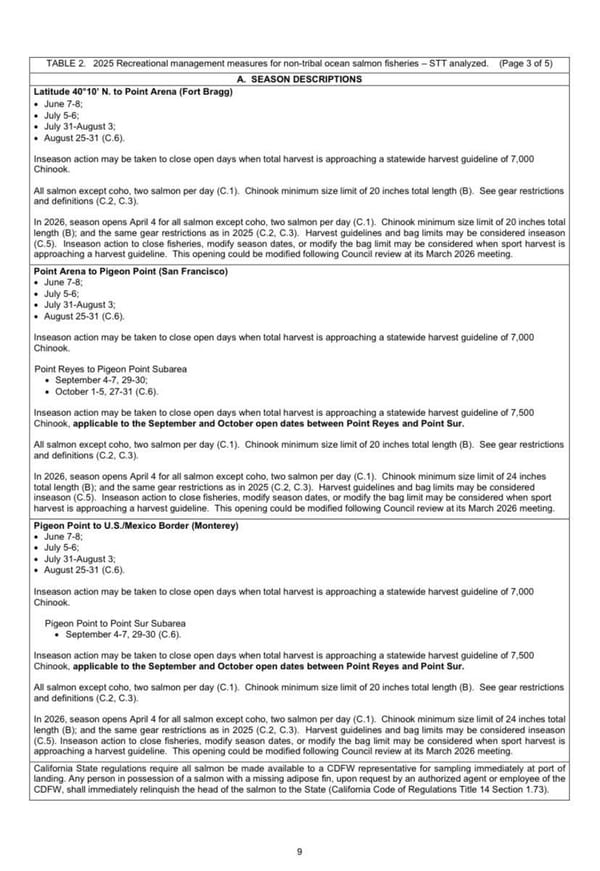Big Oil pumps $13 million into killing climate bills in California in first half of 2023
Sacramento — The outrageous lobbying spending by Big Oil and Big Gas to influence the Legislature, regulators and Governor’s Office in California appears to be only getting worse, according to the latest lobbying disclosures with the California Secretary of State.
Lobbying disclosures from Quarter 2 of 2023 analyzed by three climate and environmental justice groups reveal that oil companies and trade associations spent more than $3 million lobbying and a grand total of $4,085,639.57 in just three months to shape policymaking efforts in its favor in California.
“This brings the total mid-year spending by Big Oil to influence energy and climate policy in California to more than $13.4 million, a total that puts them on track to exceed their 2022 expenditure of $18 million,” according to a joint press statement by the Climate Center, VISIÓN and Physicians for Social Responsibility.
The latest disclosures follow the $9.4 million that Big Oil spent to influence the California Legislature, Governor’s Office and agencies in the first quarter of 2023. Chevron came in first with over $4.9 million spent in the first quarter, while the WSPA finished second with over $2.3 million and Aera Energy finished third with nearly $628,000.
”Big Oil continues to rake in massive profits while we pay the price with heat waves, floods, and smoke-filled skies,”
Marjaneh Moini, MD, a Board Member for Physicians for Social Responsibility
These disclosures also follow the $34.2 million that Big Oil spent lobbying in the 2021-22 session. WSPA topped lobbying expenses with $11.7 million spend in the 2021-22 session, while Chevron finished second with a total of $8.6 million lobbying California officials.
”Every quarter, Big Oil puts a new price tag on desperation,” said Kobi Naseck, coalition Coordinator of Voices in Solidarity Against Oil in Neighborhoods. ”The industry responsible for poisoning millions of Californians is desperate to stem the legislative movement that is finally taking up the task of much-needed regulation.”
“We see this same pattern over and over: millions of dollars spent fighting each historic law that prioritizes our collective right to a livable future. The environmental justice community will not allow Big Oil’s corporate machine to undo the protective measures we’ve fought for on behalf of Californians on the frontlines of the climate and economic crisis,” said Naseck.
Chevron led with the highest lobbying spending during Q2 by far, contributing more than $1.1 million, the groups noted. The Western States Petroleum Association, headed by President Catherine Reheis-Boyd, the former Chair of the Marine Life Protection Act (MLPA) Initiative Blue Ribbon Task Force to create “marine protected areas” in Southern California, followed with more than $716,000. Refining giant Marathon Petroleum came in at a distant third with $194,000.
The top 10 lobbying spenders can be seen below:
| Company/Trade Association | Amount Spent |
|---|---|
| Chevron | $1,139,129.90 |
| Western States Petroleum Association | $716,824.24 |
| Marathon Petroleum | $194,258 |
| Phillips 66 | $119,472 |
| PBF Energy | $111,370 |
| Aera Energy | $115,191 |
| California Independent Petroleum Association | $89,600 |
| California Resources Corporation | $75,000 |
| California Carbon Solutions Coalition | $60,000 |
| ExxonMobil | $69,249 |
The groups said these filings “depict widespread industry opposition to a number of key pieces of legislation.”
“WSPA, CIPA, Chevron, Aera, California Resources Corp. and TRC Operating lobbied against SB 556, which was killed in Q2 and would have created civil liability of up to $1 million for cancers and health problems associated with living within 3,200-foot of all oil and gas production facilities,” according to the groups.
“Aera, Marathon, Shell, PBF Energy, Valero, WSPA, Chevron, CIPA, Phillips 66 and others all lobbied against SB 253, still-alive-legislation that would require companies with total annual revenues of over $1 billion to publicly disclose their full supply chain greenhouse gas inventories. They also lobbied against the companion bill SB 261, which calls for companies with annual revenues of $500 million and above to disclose climate-related financial risks and the measures adopted to reduce those risks,” the groups reported.
”Big Oil continues to rake in massive profits while we pay the price with heat waves, floods, and smoke-filled skies,” said Nicole Rivera, Government Affairs Director for The Climate Center. “Rather than pay for their pollution, these corporations are spending their massive profits on advertising and PR to appear climate-friendly while their lobbyists work behind the scenes to stall climate action. It’s time for California’s leaders to stop turning to corporate polluters for climate solutions, eliminate fossil fuel subsidies, and phase out oil and gas production.”
The groups said Marathon Petroleum, Valero, WSPA, Chevron, CIPA, CRC, and Phillips 66 also lobbied to defeat SB 12, which would have reduced statewide greenhouse gas emissions to at least 55% below the 1990 level by the end of 2030, up from the state goal of 40%.
“Notably, plains All American Pipeline, Aera, CRC, Chevron, as well as CIPA, WSPA, and the fossil fuel industry-funded California Carbon Solutions Coalition, also lobbied in support of gutting the state’s bedrock environmental protection law, the California Environmental Quality Act (CEQA) via SB 422 and AB 914,” according to the groups.
Shell, Valero, and Chevron also lobbied against AB 1550, legislation that the groups said would push the state to transition off of fossil fuel-based hydrogen and toward renewable energy-based green hydrogen.
“Big Oil rips off Californians at the pump and uses its record profits to fight public health measures,” said Marjaneh Moini, MD, a Board Member for Physicians for Social Responsibility. “Our most overburdened communities breathe the most polluted air and bear the brunt of the greatest health threat of all times: the climate crisis. There is no time to lose. We have to stop the flow of dirty dollars into Sacramento.”
”The same way the FDA banned menthol cigarettes to protect public health, our state policymakers must stand up to Big Oil, end environmental racism, and invest in a climate plan centered in health equity rather than menthol-like false solutions such as carbon capture technology,” Moini concluded.
In addition to stopping climate bills, the intense lobbying by Big Oil also resulted in CalGEM, California’s oil and gas regulator, approving thousands of oil drilling permits in California.
The total number of oil drilling permits issued has blown past 15,000 since Governor Newsom took office in 2019. Meanwhile, nearly all permits issued in the first six months of 2023 were to fix unproductive wells, not to drill new ones, Consumer Watchdog and FracTracker Alliance revealed in an analysis: www.dailykos.com/…
2023 gusher of oil money follows $34.2 million spent in 2021-22 session
The oil and gas industry spent over $34.2 million in the 2021-22 Legislative Session lobbying against SB 1137, legislation to mandate 3200 foot buffer zones around oil and gas wells, and other bills they were opposed to: cal-access.sos.ca.gov/…
For the oil companies, this was just pocket change when you consider that combined profits of California oil refiners, including PBF Energy, Chevron, Marathon Petroleum, Valero, and Phillips 66, were $75.4 billion in 2022.
The two biggest spenders were WSPA and Chevron. WSPA spent $11.7 million in the 2021-22 session, while Chevron spent a total of $8.6 million lobbying California officials.
The Western States Petroleum Association (WSPA), the largest corporate lobbying group in California, Chevron and the oil companies exercise their influence and power through a very sophisticated public relations machine in California and the U.S.
WSPA describes itself as “non-profit trade association” that represents companies that account for the bulk of petroleum exploration, production, refining, transportation and marketing in Arizona, California, Nevada, Oregon, and Washington. WSPA’s headquarters is located right here on L Street in Sacramento.
Since 2009 I have documented how WSPA and the oil companies wield their power in 8 major ways: through (1) lobbying; (2) campaign spending; (3) serving on and putting shills on regulatory panels; (4) creating Astroturf groups; (5) working in collaboration with media; (6) sponsoring awards ceremonies and dinners, including those for legislators and journalists; (7) contributing to non profit organizations; and (8) creating alliances with labor unions, mainly construction trades.
Big Oil sponsors media dinners and awards for journalists
Over the past year, Big Oil has launched a chilling campaign to sponsor dinners, awards ceremonies and conferences for journalists and the media. WPSA sponsored a “media dinner” on Tuesday, February 28 in Sacramento as part of #BizFedSactoDays.
The flyer for the event stated, “Journalists who play an outsize role in shaping narratives about state politics and holding lawmakers accountable will join business leaders to pull back the curtain on how they select and tell stories about California policies, policy and power.”
Speakers at the program included Coleen Nelson of the Sacramento Bee, Laurel Rosenhall of the Los Angeles Times, Kaitlyn Schallhorn of the Orange County Register and Dan Walters of Cal Matters.
More recently, the Sacramento Press Club announced that WSPA was a new “Lede Sponsor” of the Sacramento Press Club’s Journalism Awards Reception that was held on March 29. Sadly, only two journalists, myself and Aaron Cantu of Capital and Main, publicly challenged the funding of journalist awards by Big Oil.
In addition to sponsoring journalism events in California, the Western States Petroleum Association has expanded its campaign to influence journalists nationally. WSPA and the controversial waste management firm Veolia North America sponsored events at this year’s Society of Environmental Journalists (SEJ) conference in Boise, Idaho, according to a report from DeSmog: scq.io/…
The agenda for the conference, hosted in Boise, Idaho, revealed that WSPA and the waste management company Veolia North America sponsored two of the “beat dinners” hosted on April 21, the article by Sam Bright reported.
When #BigOil teams up with journalists, columnists and editors at events and only a couple of writers thinks there’s something wrong with this, you know we must be in deep trouble.



